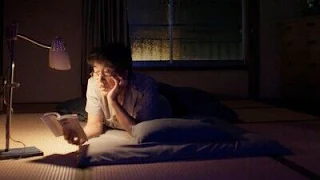 |
| https://www.rottentomatoes.com/tv/tokyo_vice |
I don't know why, but watching this miniseries reminded me of President Xi Jinping's recent visit to Southeast Asian countries. Everyone had much to say about Xi in private regarding the CCP's megalomaniac and imposing projects. Still, when the big Don landed in their backyard, leaders from these minion nations decided to hide their tails behind their hind legs and play dead. No one can blame them. This is the effect a powerful nation has on smaller ones. It happened in ancient times and continues to happen now. Might is right.
When the majestic fleet of the Ming Dynasty emperor came to the Malaccan shores in the 1400s, the Sultan had no choice but to send his emissaries to China with gifts. When the Siamese King showed displeasure, another entourage would go there with gifts and beautiful princesses to solidify international relations.
Intertwined with physical might are the potent forces of wealth and political office, with a recent addition being the capacity to influence public opinion. The power of propaganda cannot be overstated. In this modern world, where news travels faster than both light and sound combined, those who control the news literally control the revolutions of the planet!
This miniseries is based on Jake Adelstein's book of the same name, subtitled "An American Reporter on the Police Beat in Japan." Jake worked as an apprentice journalist at Yomiuri Shimbun, one of Japan's premier newspapers. He studied Japanese Literature at Sophia University in Tokyo, a Jesuit-sponsored institution. He was the newspaper's first non-Japanese reporter.
The book narrates his observations as an American looking at the working culture, working environment and his experiences reporting on criminal cases around Tokyo. He shadowed a police officer and was exposed to the down low of the running of the yakuza activities and the precarious understanding that they and the police foster. The yakuza are a necessary evil in Japanese society. Peace is maintained when different gangs have a sense to respect each other's boundaries and not to step on each other's toes.
The yakuza have intricate connections in all layers of society, including the police, politicians, and the media. What is reported in the press for general consumption is generally agreed upon by all factions above. Those in power justify suppressing the truth by citing national security and the need to maintain public order.
A similar scenario also occurs in Malaysia. Many of my schoolmates, who have since retired from active journalism, have much to say about the murmurs surrounding major breaking news that erupts frequently. Fearing the repercussions of breaching the disclosure clauses in their employment contracts, they would remain silent during conversations. Having interacted with them since childhood, I could see that their words were on the tip of their tongues, eager to burst out, but did not.
Jake's report about a well-known yakuza boss allegedly making a deal with the FBI in exchange for a liver transplant in the USA landed him in a great deal of trouble. Intertwined in the plot is another gaijin (a foreigner in Japanese), the American daughter of an evangelist who flees home to start a new life as a hostess, a modern version of a geisha. In this context, a hostess is someone who serves drinks, engages in conversation, and sits at tables in a bar or high-end restaurant. It is strictly non-contact entertainment. They make money through patrons' tips and from the owners of the establishment based on the number of drinks clients purchase.
I am grateful to SA for recommending this engaging miniseries to me. It helped me understand the subtle balance between vice, criminal activities, police work, and conducting business in the modern world. Much like a peacekeeping conduit, politicians play the role of middlemen, striking a balance between allowing gangsters to operate and keeping the police guessing their next move. They aim for a win-win situation where the bad guys (the yakuza, in this instance) exert their control over the public, politicians continue to disguise themselves while profiting, and the general public believes that their lives are improving. In reality, people are being taken advantage of while everyone else gets richer at the expense of the general public.










%20-%20Anime%20News%20NetworkSEA.jpeg)




.jpeg.webp)






